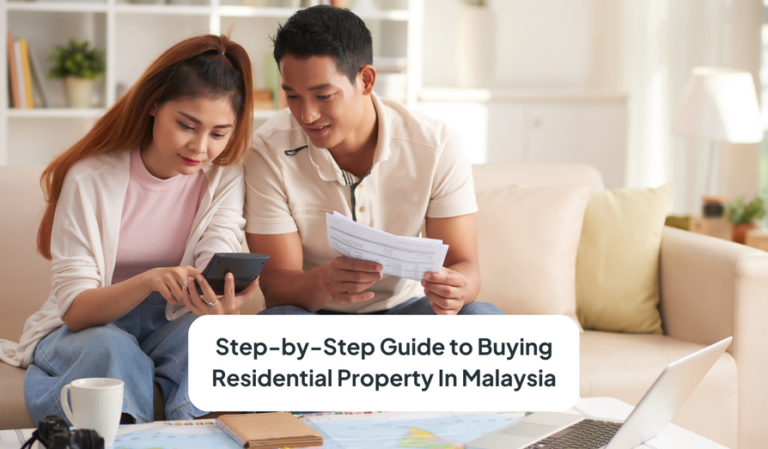Moving out to your own place is a big step and a life decision that should not be made lightly. Once you’ve made the decision to rent, how can you make the process as smooth and stress-free as possible?
Here are some tips for finding the perfect rental home in Malaysia and securing a tenancy agreement that suits your needs.
1. List down your needs and wants
Know exactly what you need and want in a rental unit. What factors are not negotiable, and what can you compromise on? By determining the particular features you seek will make it easier to narrow down options.
Here are some questions you need to address:
- How long do you plan to stay in the area?
- How far is the rental property from your office?
- What public transportation options are available?
- Is it near grocery stores, a hospital, and other amenities?
- Is the area safe or are there issues with crime?
- How many people will occupy the rental unit?
Your list of needs can include the number of bedrooms and bathrooms, the layout of the home, and fixtures like closet space. If you own a car, you’ll need to ask if the unit comes with a parking spot. Would it be more cost-effective for you to buy your own furniture, or go for a semi-furnished or fully furnished place to rent?
Before you move in, take pictures and list down the property’s contents and existing damages, regardless of how insignificant you may think it is at the time. This is so when your lease is up, you’ll avoid paying extra for things you were not responsible for.
2. Understand the Tenancy Agreement
You might be wondering if a tenancy agreement and a lease are the same, and if the terms are interchangeable. Though both are legal agreements, a tenancy refers to the rental of a property for three years or under and does not need to be registered. A lease requires registration as the agreement rental period is longer than three years.
Before you sign
The tenancy agreement is a legally binding contract between yourself and the landlord. Throughout your leasing period, you will surely need to refer to the agreement, which is why asking for a copy of the signed agreement is advised.
Understand the agreement by reading it carefully, and get a lawyer or someone with rental experience to read it too. If you have a verbal agreement with the landlord, make sure you write it down and include these terms in the official agreement.
Your leasing agreement will usually detail important information such as when is the rent due, what the late penalties fee would look like, and how to submit a concern about the property or a maintenance request. The agreement will also include details of your responsibilities as a tenant.
Pay the deposit
You will be required to put down a security deposit before moving in, usually amounting to two or three months of the monthly leasing fee. The deposit will be returned to you at the end of your tenancy agreement or may be used to pay for any possible damages that may have occurred when you were leasing the place.
At the end of the lease
Most landlords will look for a tenant who can stay for a minimum of one to two years. This is so they won’t have to worry for a long period that the house will just be sitting there with no rental income. They may also have plans for the property that may interfere with your timeline plans. So, plan and be honest about how long you see yourself living there.
Towards the end of your leasing period, your landlord may offer you a renewal on the lease, usually with the same or similar points as the previous tenancy agreement. However, if you decide that it’s time to move, you are required to provide a minimum of two month’s notice in writing.
3. Know your rights and responsibilities as a tenant
Tenant rights
In Malaysia, there isn’t a specific act in place to govern landlords and tenants. However, the Malaysian Bar does note that there are several provisions under Part 15: Leases & Tenancies of the National Land Code 1965, that are usually implemented to solve any disputes related to tenancy.
A heads up if you ever find yourself in the situation of not having paid your due rental, it is unlawful for property owners to evict tenants or recover possession of the house or room without a court order under Section 7(2) of the Specific Relief Act 1950. Any extreme measures such as changing the locks or kicking out tenants without necessary court documents to show will result in landlords being sued for trespassing by their tenants.
Tenant responsibilities
The responsibilities of a tenant will often be detailed within the tenancy agreement and can vary from agreement to agreement. Nevertheless, most will fall along the lines of avoiding damages to the property and paying for repairs if you or your guest cause damages to the place. You will also have to report problems, like mold or water damage to your landlord promptly so that they can have it fixed.
You also need to allow your landlord to conduct inspections and necessary maintenance work, provided they give you notice ahead of time. Other responsibilities include paying rent on time and following the rules outlined in the agreement, such as no sub-letting unless stated differently in the agreement.
Make sure to follow the list of rules and responsibilities if you want to renew your lease or get your deposit back.
Looking for listings to lease? Download Ohmyhome from Play Store or App Store now! or website will easily match you to your dream home.












